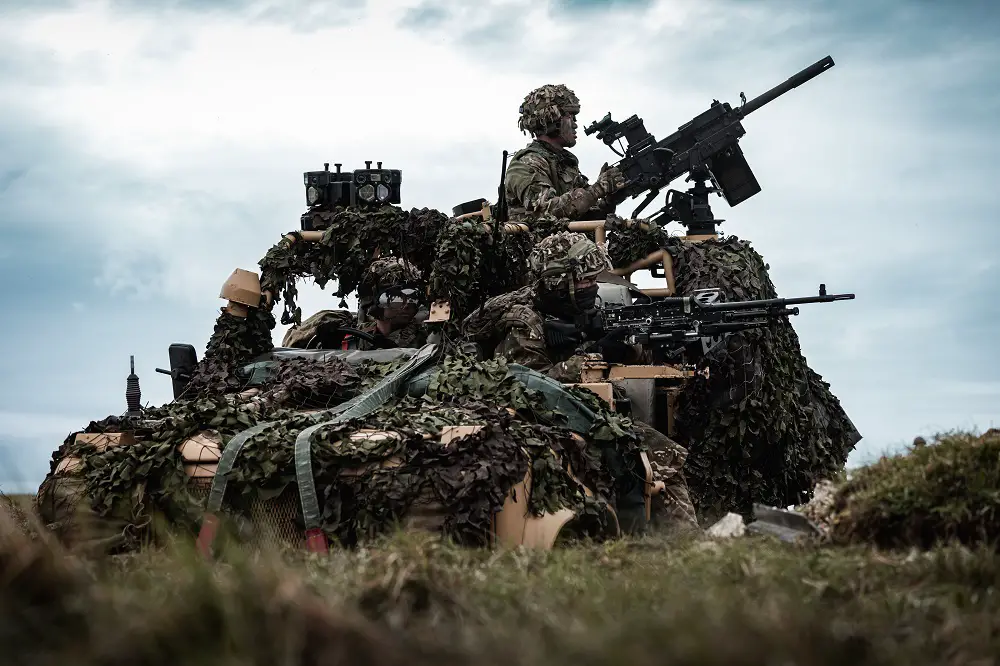The British Army’s Global Response Force (GRF) is being put through its paces with demanding training on Salisbury Plain Training Area. As the GRF, 16 Air Assault Brigade Combat Team (16 Air Asslt BCT) demonstrates a more agile, integrated, lethal and expeditionary Army. Exercise Wessex Storm, which is taking place in Wiltshire, sees the Royal Gurkha Rifles 2nd Battalion (2 RGR) and the Royal Irish Regiment 1st Battalion (1 R IRISH) being challenged to prove their readiness to respond to international crises. The troops are on a simulated mission testing their ability to seize and hold terrain. The Brigade has gained additional artillery, engineer, and logistic sub-units to create a third battlegroup built around its existing Royal Gurkha Rifles battalion; while the Royal Irish Regiment 1st Battalion joined as light recce strike infantry.
Speaking about the new role, 1 R IRISH’s Commanding Officer Lieutenant Colonel Andy Bourne said: “We were more focused on the jungle whilst overseas but didn’t forget our urban tactics and exercising on the vast area of Salisbury Plain has sharpened our skills and drills. We have been operating in a very complex urban training environment, it is very challenging but really good, we’ve learnt a lot. It has been brilliant, we’ve come out with what we think are good ideas and we’ve had the chance to test them, trial them, to readjust and go again. I think the product we have at the end of it is now hardened and battle tested, and ready to be at readiness.”

Captain Toby Eddings, of 2 RGR, said: “This is an opportunity to work with all arms, the broad spectrum of the British Army’s capabilities, as well as joint operations with the RAF to conduct the rapid air landing and practice that air movement element. For our soldiers it is exposure to the Army beyond the infantry, to understand what the engineers and artillery bring and their part in the wider picture, and what is available to them should we deploy overseas. The bottom line of Exercise Wessex Storm for 2 RGR is it prepares us to be the Air Manoeuvre Battle Group within 16 Air Asslt BCT.”
The Royal Gurkha Rifles 2nd Battalion started the mission by capturing Keevil airfield in a helicopter assault, with the heavier forces of the Royal Irish Regiment 1st Battalion following by airlanding from RAF transport aircraft. As the force advances across Salisbury Plain, the Royal Gurkha Rifles 2nd Battalion is being enabled to fight, move, and live by the engineers of 70 Gurkha Parachute Squadron and supplied with food, fuel, and ammunition by 15 Air Assault Support Squadron Queen’s Own Gurkha Logistic Regiment. 16 Air Assault Brigade Combat Team currently has troops training alongside its NATO airborne allies in Poland and Estonia, with manoeuvres alongside US and French airborne troops in Kenya and Oman respectively later in the year. All the while, troops are on standby to respond to global crises.
















